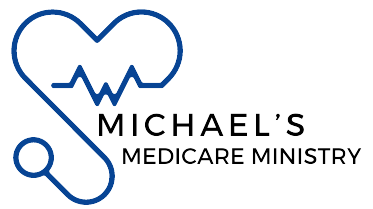The process of choosing the best health insurance plan can be difficult and confusing, especially with so many options available. This guide, focused on Health Insurance Services in Beaverton, seeks to streamline the procedure by providing professional advice to assist you in making an informed choice. These pointers can help you select a health insurance plan that best fits your needs and budget, regardless of whether you are a new customer or looking to switch policies.

Recognize Your Needs for Health
Understanding your individual health needs is the first step in selecting a health insurance plan. This include assessing your past medical history, present health issues, and anticipated future health. Take into account elements like:
Frequency of Doctor Visits: If you see the doctor a lot, try to find insurance coverage with lower deductibles and copayments.
Prescription Drugs: Verify that the plan includes reasonable copayments or coinsurance and that it covers your prescription drugs.
Specialist Care: Verify whether specialists are covered by your plan and whether referrals are necessary if you need to see one.
Family Health Needs: When searching for a family plan, take into account the health requirements of every member of the family.
Examine Various Plans
Start evaluating various health insurance plans as soon as you have a clear understanding of your needs. Examine the features and alternatives for coverage that each plan provides. Here are some important things to think about:
- The monthly premium you pay for your health insurance is known as your premium. Although reduced premiums might sound alluring, they frequently result in greater out-of-pocket expenses.
- The amount you pay for medical treatments before your insurance kicks in is known as your deductible. Lower premiums are often associated with higher deductibles, and vice versa.
- After your deductible is satisfied, you and your insurance company split the cost of medical treatments. This is known as copayments and coinsurance.
- The annual maximum that you will be required to pay for eligible services is known as the “out-of-pocket maximum.” Once you hit this threshold, your insurance will pay for all covered procedures in full.
Inspect the Provider Network
Networks of physicians, hospitals, and other healthcare providers are part of health insurance policies. It is imperative that you select a plan with a network that includes your chosen healthcare providers if you want to maximize your benefits and minimize expenditures. Consider the following:
Inside-Network vs. Outside-of-Network: Providers inside your insurance company’s network are obligated to provide services at a discounted rate. Costs associated with using out-of-network providers can be much higher.
Primary Care Physicians: If you have a long-standing relationship with your preferred physician, be sure they are part of the plan’s network.
Hospitals and Specialists: Verify if your favorite hospitals or those you require specialized care are part of the network.
Recognize the Different Plan Types
Health insurance plans come in a variety of forms, each with unique requirements and advantages. Making sense of these will enable you to choose more wisely:
Health Maintenance Organization (HMO): Unless there is an emergency, you must use the network’s physicians and hospitals. To see a specialist, you require a referral from your primary care physician.
PPO: Provides greater freedom in selecting medical providers and eliminates the need for recommendations. Out-of-network providers are visible to you, but they will cost more.
Unlike HMOs, An Exclusive Provider Organization (EPO) does not require a reference in order to see specialists. Except in cases of emergency, out-of-network providers are not covered.
Point of Service (POS): Merges PPO and HMO functionalities. A referral is required to see a specialist, however seeing out-of-network physicians will incur additional fees.

Examine the Coverage and Benefits.
Examine each plan’s perks and coverage in detail. Look past the essentials to discover what other advantages are offered:
Preventive Care: Preventive care is often provided by most plans at no additional cost and includes immunizations, screenings, and check-ups.
Maternity and Newborn Care: Verify the coverage for maternity and newborn care if you intend to become a parent.
Mental Health Services: Verify if the plan includes treatment for substance abuse and mental health issues.
Rehabilitation Services: Verify your insurance coverage for any necessary physical therapy, occupational therapy, or other rehabilitation services.
Analyze the Expenses
It’s critical to comprehend the entire cost of a health insurance plan. This covers both the out-of-pocket expenses and the monthly premiums. Consider the following:
Monthly Premiums: The sum of money you have to pay for health insurance on a monthly basis.
Deductibles are the costs you bear directly out of pocket for medical care before your insurance kicks in.
The expenses you split with your insurance provider for medical treatments are known as copayments and coinsurance.
Not in My Pocket Maximum: The most sum that you can expect to spend in a given year for services that are covered.
Look for Extra Benefits and Services
There are numerous extra benefits and services available with health insurance plans that can improve your coverage. These could consist of:
Telehealth Services: Online consultations with medical professionals are available.
Wellness programs are those that encourage leading a healthy lifestyle and provide rewards for doing so.
Health Savings Accounts (HSAs): These are accounts that let you set aside money for medical costs without incurring taxes.
Fitness subscriptions: Rebates or discounts on fitness classes and gym subscriptions.
Examine the fine print.
It’s crucial to review the health insurance plan’s fine print before deciding on anything. This covers the terms and conditions, exclusions, and limits found in the policy documents. Be mindful of:
Coverage Limits: The quantity of visits or treatments that are covered by certain plans is limited.
Exclusions: The plan might not cover all services or treatments.
Pre-Existing Conditions: Verify how pre-existing conditions are addressed in the plan.
Claims Procedure: Recognize the steps involved in submitting claims and the speed at which they are handled.
Consult a Professional
If you feel overwhelmed by the process of selecting a health insurance plan, you might choose to see a specialist. Agents and brokers for insurance may guide you through the different options and offer insightful advice. How they can help is as follows:
Expertise: Brokers and agents can assist you in comprehending the subtle differences between various health insurance plans because they possess extensive understanding about them.
Tailored Suggestions: They are able to offer tailored advice depending on your financial situation and medical requirements.
Help with enrolling: Brokers and agents are available to help with the enrolling process, making sure you finish all required documentation and adhere to deadlines.

Make Use of Internet Resources
To compare health insurance plans and make an informed choice, you may find a wealth of information online. These sources are able to offer:
Tool for side-by-side comparison of several health insurance plans: plan comparisons.
Cost Calculators: These calculators use the plan’s premiums, deductibles, and out-of-pocket expenses to determine how much healthcare will cost you overall.
Provider directories: Use these to see if the hospitals and physicians of your choice are covered by the plan.
Customer Reviews: Feedback and evaluations from previous users might provide light on the level of customer support and quality of the plan.
Professional advice guidelines
It’s important to carefully evaluate your preferences, financial situation, and medical needs before selecting a health insurance plan. You can make an informed choice and make sure you and your family have the coverage you require by paying attention to these professional advice guidelines. Don’t forget to evaluate benefits, comprehend prices, compare plans, and, if necessary, seek professional help. You can feel secure knowing that your health is well-protected if you have the appropriate strategy in place.




